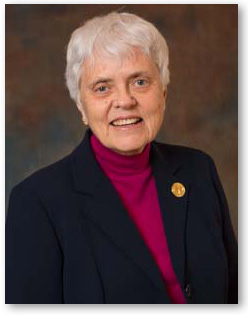Readings: Acts of the Apostles 10: 25-26, 34-35, 44-48; Psalm 98; 1 John 4: 7-10; John 15: 9-17
 Could it really be true that God’s love is impartial? Can we really trust the words of Scripture that repeatedly remind us that every person is not only accepted by God, but also cherished and loved without exclusion? In today’s reading from the Acts of the Apostles, Peter boldly proclaims God’s love as the heart of the mission of Jesus. “In truth I see that God shows no partiality.” The message of inclusivity astounds the circumcised believers, many of whom felt chosen, and worthy of special treatment and recognition by God. The experience of God’s universal love was equally amazing to the unbelievers.
Could it really be true that God’s love is impartial? Can we really trust the words of Scripture that repeatedly remind us that every person is not only accepted by God, but also cherished and loved without exclusion? In today’s reading from the Acts of the Apostles, Peter boldly proclaims God’s love as the heart of the mission of Jesus. “In truth I see that God shows no partiality.” The message of inclusivity astounds the circumcised believers, many of whom felt chosen, and worthy of special treatment and recognition by God. The experience of God’s universal love was equally amazing to the unbelievers.
Our resistance or distrust of God’s impartial love may be deeply rooted in our experiences from childhood and nurtured by our culture. It seems important for our self-image to be special, at least sometimes to be chosen, to be selected. Competition does not seem to foster the concept that God’s love is total and that God shows no partiality.
It seems almost incredible that God’s abounding love is present even in those who perpetrate evil of any kind. Yet where sin abounds, God’s grace is there in even greater abundance. God’s love is impartial and constant for each person, even those we may reject or find distasteful. Corrupt leaders, perpetrators of violence, addicts, Boko Haram in Nigeria, those who capture and enslave others, are loved and cherished by the same God who loves us. Each day we are witnesses to God’s love, expressed liberally, without constraint, without boundaries, to the rich and the poor, the sick and the well, the enthusiastic and the weary.
During the Easter season, we have met Jesus and his disciples at the seashore. We have been invited to touch the wounds of Jesus and to remove the bandages from our own wounds The image of the Good Shepherd leaves us with a sense of comfort and security in God’s love for us. Through the Easter grace of multiple scriptural encounters, we are able to experience an overflowing sense of gratitude and forgiveness in our hearts. This movement of our hearts stirs within us a desire to be one with that source of boundless love.
Beatrice Bruteau, the famed theologian, wrote a book entitled The Revolution of Holy Thursday. In it she identifies the actions of Jesus as expressions of the utmost love and friendship. He gave his followers the Bread of Life and the cup of joy. He knelt before each of them to wash their feet. By following Jesus’ example of simple, faithful love, we become fast friends and joyous disciples. As we eat the bread and drink the cup, and humbly serve others, we form part of that inner circle of love where boundaries are dissolved, and we finally find ourselves at home.
— Sheila Brosnan
 Sr. Sheila, currently a member of the Congregation’s leadership team, formerly served as Vice-President –Mission Integration for ArchCare, the health care ministry of the Archdiocese of New York.
Sr. Sheila, currently a member of the Congregation’s leadership team, formerly served as Vice-President –Mission Integration for ArchCare, the health care ministry of the Archdiocese of New York.
Image: SouthernHillsCOC
